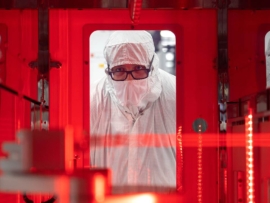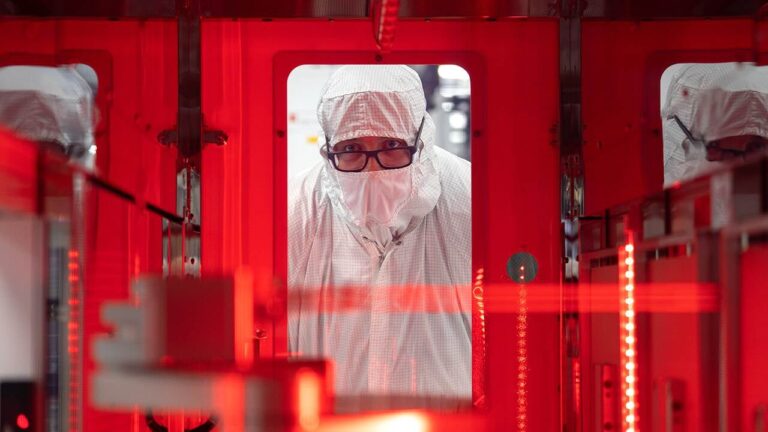
Texas Instruments has announced plans to invest more than $60 billion on semiconductor manufacturing in the US. The money will be allocated to building or expanding seven large-scale fabs in Texas and Utah that, combined, are projected to produce hundreds of millions of chips each day.
This is likely to be welcome news for US President Donald Trump, who has reiterated threats of import tariffs, including one specifically targeting semiconductors, to encourage domestic manufacturing. US chip developers face stiff competition from China, particularly as artificial intelligence has driven up demand for data centres and consumer devices.
“For nearly a century, Texas Instruments has been a bedrock American company driving innovation in technology and manufacturing,” US Secretary of Commerce Howard Lutnick said in a press release.
“President Trump has made it a priority to increase semiconductor manufacturing in America — including these foundational semiconductors that go into the electronics that people use every day. Our partnership with TI will support US chip manufacturing for decades to come.”
The chip giant plans to invest up to $40 billion to build four fabs at its Sherman, Texas, site — two of which (SM1 and SM2) are already underway, with two more (SM3 and SM4) planned to support future demand. The broader investment also supports ramping up production at RFAB2, TI’s second fab in Richardson, Texas, and expanding its Lehi, Utah, site, where LFAB1 is being ramped and a second fab, LFAB2, is under construction.
This marks the “largest investment in foundational semiconductor manufacturing in US history,” Texas Instruments said in a press release. Once fully operational, all seven sites are expected to generate over 60,000 jobs.
Texas Instruments already produces chips for Apple smartphones, Ford vehicles, Medtronic medical instruments, NVIDIA AI infrastructure, and SpaceX satellites.
Trump’s tariffs have lit a fire under chipmakers, but they have been increasing their US presence since before his presidency
Texas Instruments is not the only chipmaker expanding its US footprint. In March, TSMC announced what it described as the “largest single foreign direct investment in US history,” raising its committed spending to $160 billion, while Micron increased its planned spending in the States by $200 billion just last week.
Intel has also reportedly agreed to allow TSMC to take over some of its US chipmaking facilities. The latter has Trump’s backing as Big Blue has been struggling to keep pace with other chip giants, and the president is keen to revive it to its former glory.
Even prior to the tariffs, Microsoft had committed over $40 billion to expanding AI data centres across the US, while Apple and IBM had both set aside hundreds of billions of dollars to support US innovation. Tim Cook has since fallen out of favour with Trump after he revealed plans to shift Apple’s manufacturing operations to India in response to the tariffs.
Part of the Texas Instruments announcement was made before Trump’s second term in the White House began. Former president Joe Biden finalised a $1.6 billion government subsidy for the company to build three new manufacturing plants in December 2024.
As well as tariffs, Trump is changing legislation to support the US chip industry
Aside from tariffs, Trump has made several other moves to boost US chip manufacturing. In May, he rescinded Biden’s AI diffusion rule, which limited chip sales to certain countries seen as adversaries.
The president has also called on Congress to “get rid of” the 2022 CHIPS and Science Act, a piece of Biden-era legislation that allocated $52 billion in subsidies and tax incentives to support semiconductor research and manufacturing.
The act was designed to shield the US from the supply chain risks posed by geopolitical tensions, helping to avoid a repeat of the 2020 global chip shortage. However, Trump argues that it funnels billions to foreign companies, like TSMC, without meaningful returns for the US.
Still, his plans can backfire. April’s retaliatory tariffs sent tech stocks tumbling as investors feared supply chain disruptions, rising production costs, and weaker demand for electronics and AI infrastructure. Microsoft reportedly hit the brakes on some of its US data centre plans in response.
Explore how Trump’s tech tariffs could send gadget prices soaring and what it means for the global chip war.

